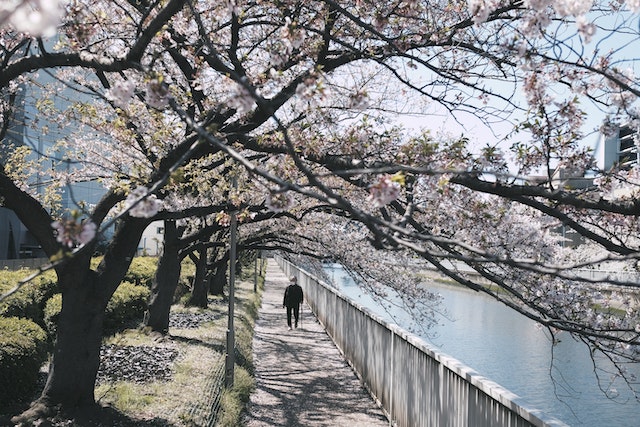Moving to Tokyo can be an exciting but daunting experience. The bustling city, with its unique blend of traditional and modern culture, can be overwhelming for newcomers. However, with the right preparation and mindset, moving to Tokyo can be a smooth and enjoyable transition. In this article, we will provide four tips to help make your move to Tokyo as stress-free as possible.
Understanding the Visa Process
Moving to Tokyo requires a valid visa that allows an individual to stay and work in Japan. The visa process can be complex, but with proper preparation and understanding, it can be straightforward.
There are various types of visas available depending on the purpose of the visit, such as work, study, or family reunion. For those moving to Tokyo for work, a work visa is required. The application process for a work visa involves submitting the necessary documents, including a valid passport, a certificate of eligibility, and a letter of employment from the employer in Japan.
Once the visa is approved, the individual will receive a Zairyu Card, also known as a residency card, which is a crucial document for living and working in Japan. The Zairyu Card contains personal information, such as the individual’s name, address, and visa status.
It is essential to note that the Zairyu Card must be carried at all times, as it serves as proof of legal residency in Japan. Failure to carry the card can result in fines or even deportation.
Understanding the visa process is crucial when moving to Tokyo. It is essential to research the necessary documents and requirements and follow the application process carefully to obtain a valid visa. Additionally, always carry the Zairyu Card to avoid any legal issues.
Finding Accommodation
Moving to Tokyo can be an exciting adventure, but finding a place to live can be a daunting task. Here are a few tips to help make the process easier.
Location
When looking for accommodation in Tokyo, it’s important to consider your location. Tokyo is a massive city, and each area has its own unique vibe and advantages. Some popular areas for expats include Shibuya, Shinjuku, and Roppongi. However, keep in mind that these areas can be more expensive.
Accommodations
There are a variety of accommodations available in Tokyo, from share houses to renting an apartment. Share houses are a popular option for those who want to live with others and save money on rent. Renting an apartment can be more expensive, but it provides more privacy and independence.
Renting an Apartment in Tokyo
Renting an apartment in Tokyo can be a complicated process, especially for foreigners. It’s important to work with a reputable real estate agent who can help guide you through the process. Keep in mind that most apartments in Tokyo require a large deposit and key money, which can add up to several months’ worth of rent.
Ichinomiya, One Person
If you’re a single person looking for accommodation in Tokyo, Ichinomiya may be a good option. This area is located in Chiba prefecture, just outside of Tokyo. It’s a quieter area, but still within commuting distance to the city.
Remember to start your search early and be prepared to be flexible. With these tips in mind, you’ll be on your way to finding the perfect accommodation in Tokyo.
Financial Considerations
Moving to Tokyo can be expensive, so it’s important to consider the financial aspects of the move before making any decisions. Here are some key things to keep in mind:
Cost of Living
Tokyo is known for being one of the most expensive cities in the world, so it’s important to research the cost of living before moving. Housing, transportation, and food are all likely to be more expensive than what you’re used to, so make sure to budget accordingly.
Opening a Bank Account in Japan
Opening a bank account in Japan can be a bit tricky for foreigners, but it’s necessary for things like receiving your salary and paying bills. It’s recommended to do some research and find a bank that caters to foreigners, as they will likely have English-speaking staff and be more familiar with the process.
Employment
Finding employment in Tokyo can be challenging, especially if you don’t speak Japanese. However, there are many international companies in the city that may be more open to hiring foreigners. It’s also recommended to have a solid savings cushion before moving, as it may take some time to secure a job.
Pension and Social Insurance
If you plan on staying in Japan for an extended period of time, it’s important to enroll in the national pension system and social insurance. This will provide you with healthcare coverage and ensure that you’re contributing to your retirement fund. Make sure to research the requirements and enrollment process before moving.
Moving to Tokyo requires careful financial planning and consideration. By researching the cost of living, finding a foreigner-friendly bank, securing employment, and enrolling in the appropriate social programs, you can ensure a smoother transition to life in the city.
Healthcare System
Moving to Tokyo means navigating a new healthcare system. Japan has a reputation for having one of the best healthcare systems in the world, but it can be overwhelming to understand how it works. Here are a few things to keep in mind:
Health Insurance
All residents of Japan are required to have health insurance. There are two types of health insurance: national health insurance and employee health insurance. National health insurance is available to those who are not eligible for employee health insurance, such as freelancers, part-time workers, and students. Employee health insurance is provided by employers and is available to full-time employees.
National Health Insurance
National health insurance is a government-run program that provides healthcare coverage to those who are not eligible for employee health insurance. It is available to anyone who is a resident of Japan and is not covered by employee health insurance. The cost of national health insurance is based on income and is typically around 10% of your monthly income.
Medical Costs
Medical costs in Japan are relatively affordable compared to other developed countries. However, it’s important to note that medical costs can add up quickly, especially if you require hospitalization or surgery. If you have health insurance, you will typically only be responsible for a portion of the cost.
Medication
In Japan, medication is generally only available with a prescription from a doctor. Over-the-counter medication is limited to basic pain relievers and cold medicine. If you require medication, it’s important to visit a doctor to get a prescription.
Navigating the healthcare system in Tokyo can be overwhelming, but with the right information, it can be manageable.


